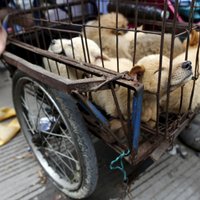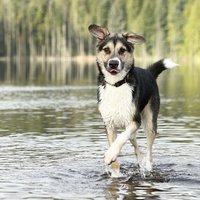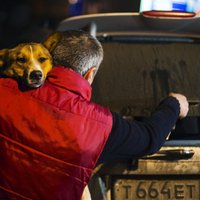
Olimpisko spēļu laikā Kenvortijs sociālajos tīklos pauda nosodījumu šim Āzijas kultūras fenomenam, suņu gaļas izmantošanai pārtikā, par ko saņēma gan atbalstu, gan nosodījumu par to, ka uzbrūk kultūrai, kuru neizprot. Korejieši amerikāņu sportistam pārmeta stereotipisku attieksmi, norādot, ka šī tradīcija modernajā pasaulē zaudē savu popularitāti un Dienvidkorejas iedzīvotāji biežāk iestājas pret suņu gaļas izmantošanu pārtikā.
Diskusiju par suņiem Dienvidkorejā Kenvortijs par jaunu uzkurināja ar jaunāko ierakstu savā "Instagram" kontā, kurā publicējis foto ar kucēnu, kas slēpotājam dosies līdz uz Ameriku. "Šodien mums ar Metu bija sirdi plosoša vizīte vienā no 17 000 suņu fermām Dienvidkorejā. Šajā valstī vairāk nekā 2,5 miljoni suņu tiek audzēti pārtikai visbriesmīgākajos apstākļos, kādi vien iedomājami. Jā, kā arguments tiek minēts, ka suņu ēšana ir daļa no korejiešu kultūras. Un, lai arī es tam nepiekrītu, es piekrītu tam, ka man nav šejienes cilvēkiem jāuzspiež savi rietumnieka uzskati. Taču veids, kā pret šiem dzīvniekiem izturas, ir absolūti necilvēcīgs un kultūrai nevajadzētu būt par attaisnojumu nežēlībai," savā "Instagram" kontā ierakstījis sportists.


